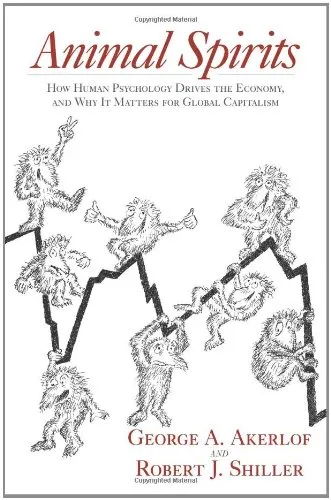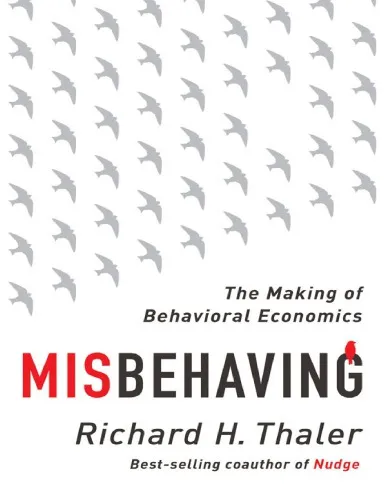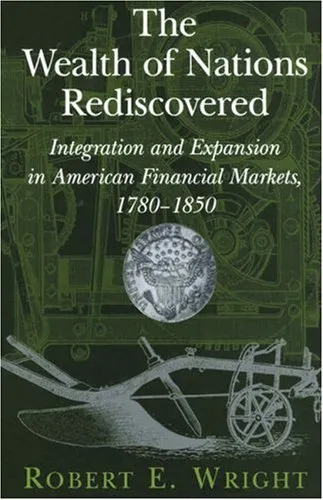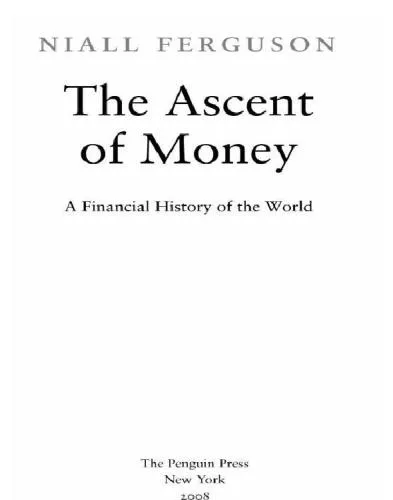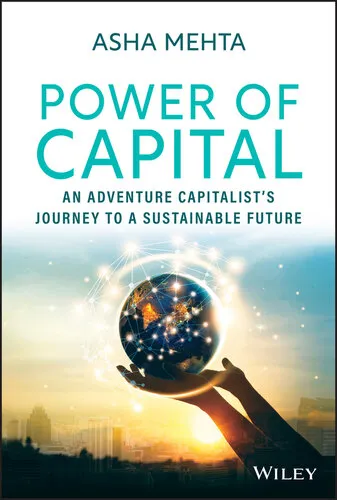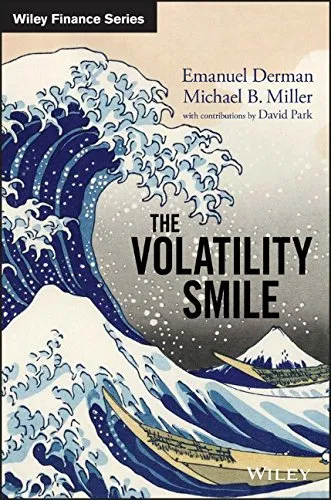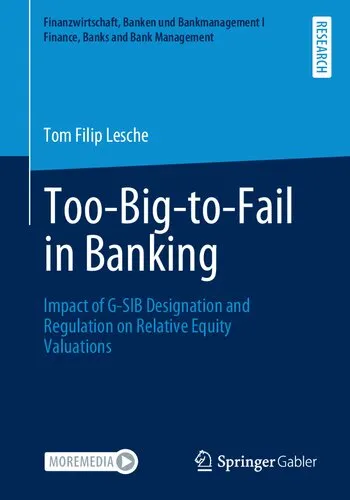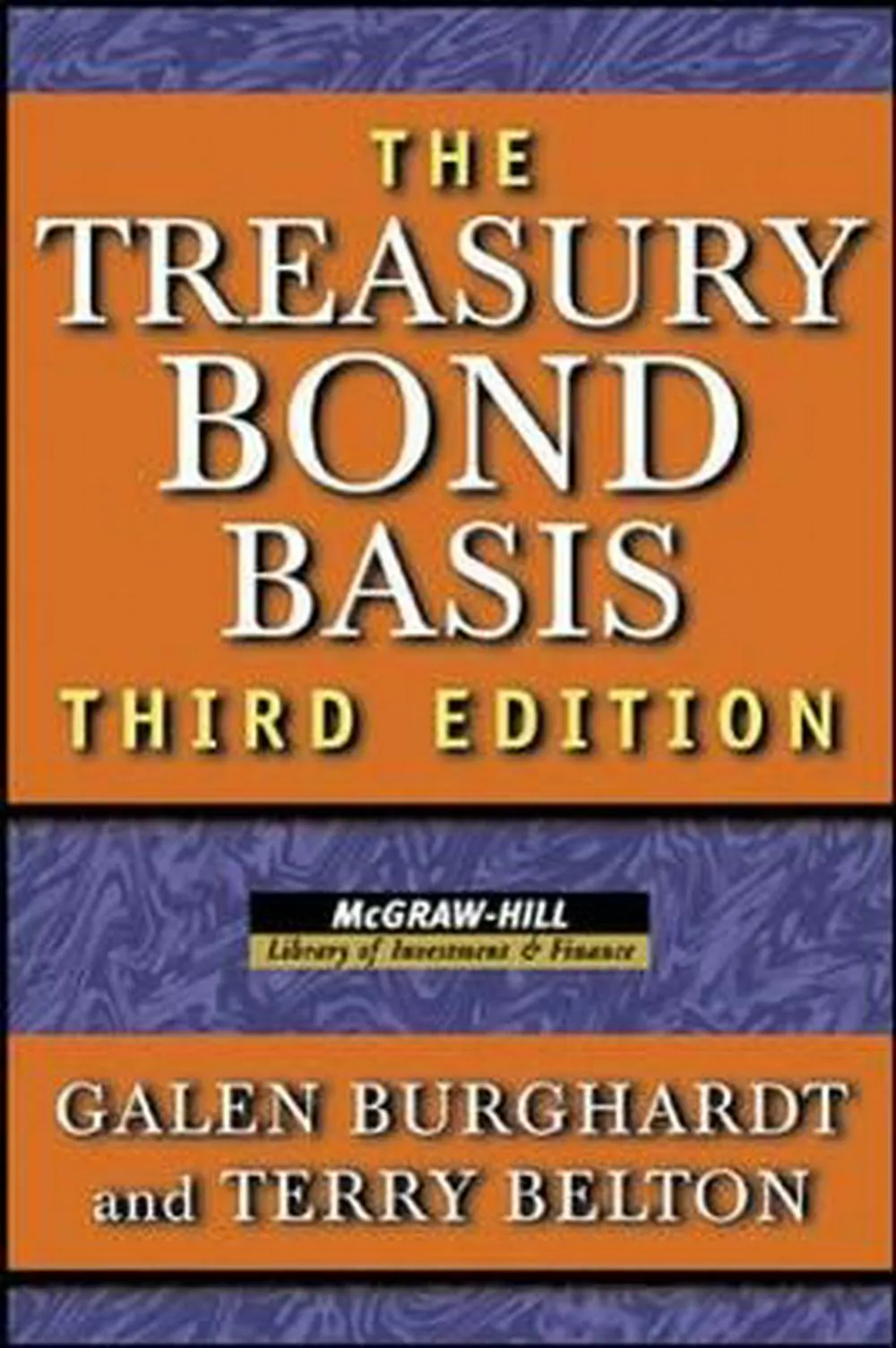Animal Spirits: How Human Psychology Drives the Economy, and Why It Matters for Global Capitalism
4.3
بر اساس نظر کاربران

شما میتونید سوالاتتون در باره کتاب رو از هوش مصنوعیش بعد از ورود بپرسید
هر دانلود یا پرسش از هوش مصنوعی 2 امتیاز لازم دارد، برای بدست آوردن امتیاز رایگان، به صفحه ی راهنمای امتیازات سر بزنید و یک سری کار ارزشمند انجام بدینRelated Refrences:
معرفی کتاب "Animal Spirits: How Human Psychology Drives the Economy, and Why It Matters for Global Capitalism"
کتاب "Animal Spirits" نوشته جورج ای. آکرلوف و رابرت جی. شیلر، به بررسی چگونگی تأثیر روانشناسی انسانی بر اقتصاد و اهمیت آن در سرمایهداری جهانی میپردازد. نویسندگان در این کتاب تلاش دارند تا با ایجاد تعادلی بین اقتصاد رفتاری و اقتصاد سنتی، توضیح دهند که چگونه احساسات و روانشناسی انسانها میتواند بر تصمیمات اقتصادی و نتایج کلان اقتصادی تأثیر بگذارد.
خلاصهای از کتاب
کتاب "Animal Spirits" در پنج بخش اصلی، که به عنوان روح حیوانی در تصمیمگیریهای اقتصادی ما شناخته میشوند، نوشته شده است: اعتماد، عدم اطمینان به بازار، ترس از شکست، فساد و تقلب، و نقش امید و انصاف در اقتصاد. نویسندگان با استفاده از مفاهیم اقتصاد رفتاری تلاش میکنند تا نشان دهند که تصمیمگیریهای اقتصادی اغلب تحت تأثیر احساسات و روانشناسی انسانی قرار دارند.
یکی از موضوعات کلیدی که در این کتاب مورد توجه قرار گرفته، مفهوم اعتماد است. همچنان که آکرلوف و شیلر ذکر میکنند، اعتماد به عنوان یکی از عناصر اصلی اقتصاد، میتواند روندهای اقتصادی را هدایت کند و یا مانع آنها گردد. عدم اعتماد ممکن است منجر به رکود اقتصادی شده و برعکس، اعتماد موفقیت و رشد اقتصادی را تسهیل میکند.
نکات کلیدی
- روانشناسی انسانی نقشی محوری در اقتصاد جهانی ایفا میکند و میتواند تأثیر زیادی بر تصمیمات اقتصادی و اجتماعی داشته باشد.
- اعتماد و امید دو عنصر مهم هستند که میتوانند رونق اقتصادی و رشد را تسریع یا کند کنند.
- نویسندگان بر این باورند که برای درک بهتر از اقتصاد، نیازمند بررسی دقیقتر جنبههای احساسی و روانشناختی انسانها هستیم.
- تعاملات بین اقتصاد رفتاری و اقتصاد سنتی میتواند بینشی عمیقتر از عملکرد بازارها فراهم کند.
نقلقولهای معروف از کتاب
"اقتصاد واقعی با روشی که باید براساس مدلهای ریاضیاتی طراحی شود، فاصله زیادی دارد؛ زیرا احساسات انسانی همیشه نقش بسزایی در چگونگی واکنش به شرایط اقتصادی دارند."
"اعتماد همچون اکسیژن برای بازارها ضروری است. بدون آن، هیچ معاملهای نمیتواند موفق باشد."
چرا این کتاب مهم است؟
با توجه به بحرانهای اقتصادی گذشته، از جمله بحران مالی سال ۲۰۰۸، نیاز به درک نقش روانشناسی انسانی در اقتصاد بیش از پیش احساس میشود. این کتاب با ارائه دیدگاههایی جدید و بررسی نحوه تأثیرگذاری احساسات بر تصمیمگیریهای اقتصادی، به سیاستگذاران، تحلیلگران، و دانشجویان کمک میکند تا رویکرد هوشمندانهتری در مقابله با چالشهای اقتصادی برگزینند. به علاوه، این اثر به خوانندگان عمومی کمک میکند تا نگاهی عمیقتر و جامعتر به نحوه عملکرد بازارها و اقتصاد جهانی بیندازند، و درک بهتری از تعاملات پیچیدهای که در پس تصمیمات اقتصادی رخ میدهد، پیدا کنند.
با بهکارگیری مفاهیم کتاب "Animal Spirits"، میتوان به نیاز به سیاستهای انسانیتر و راهکارهای جدید برای بهبود شرایط اقتصادی پی برد.
In "Animal Spirits: How Human Psychology Drives the Economy, and Why It Matters for Global Capitalism," George A. Akerlof and Robert J. Shiller delve deep into the often overlooked psychological and emotional factors that influence economic decisions and outcomes. Drawing upon both historical precedents and modern economic challenges, the book explores how human behaviors, driven by 'animal spirits,' can shape market dynamics, drive economic cycles, and necessitate new approaches in economic theories and policies.
Summary of the Book
The book challenges the classical economic viewpoint that markets are driven purely by rational decision-making. Akerlof and Shiller emphasize the role of psychological factors, which John Maynard Keynes famously termed 'animal spirits.' These include confidence, fairness, corruption, money illusion, and the stories we tell ourselves about economic events. The authors argue that understanding these elements is crucial for addressing issues such as unemployment, savings, and recessions.
Divided into carefully articulated sections, the book initially outlines the concept of animal spirits, explaining how these psychological influences can lead to fluctuations in the economy. It then delves into how these forces affect individual financial decisions and, in turn, impact the broader economic landscape. Through real-world examples and empirical evidence, the authors assert that economic policies must adapt to these human motivations and emotional responses to improve global capitalism's effectiveness.
Key Takeaways
- Human Psychology in Economics: The book emphasizes that psychological factors significantly influence economic behaviors, often in unpredictable ways.
- Beyond Rationality: Markets are not purely driven by rational decision-making; instead, emotions and mental narratives play a crucial role.
- Policy Implications: Understanding animal spirits is vital for crafting effective economic policies that can address contemporary financial challenges.
- Broader Understanding of Cycles: The recognition of psychological influences offers a deeper understanding of economic cycles, including booms and busts.
- Holistic Economic Models: The book urges for the development of new economic models that incorporate both rational and irrational behaviors.
Famous Quotes from the Book
"Animal spirits is a term used by Keynes to describe the emotions that influence human behavior and, by extension, economic decision-making. They are central to understanding economic fluctuations that otherwise seem irrational."
"Confidence is an especially critical animal spirit in ensuring our economic prosperity and stability."
"Understanding the role of stories in economics is crucial to understanding how people form expectations about the economy's direction."
Why This Book Matters
In an age where economic theories are continuously being tested against the backdrop of global financial crises, "Animal Spirits" offers a refreshing perspective that challenges traditional economic dogma. By highlighting the influence of emotions and psychology on economic behavior, Akerlof and Shiller present a compelling case for integrating behavioral economics into mainstream economic thought. This approach not only enhances our understanding of existing economic dynamics but also provides valuable insights for policymakers, economists, and anyone interested in the mechanics of modern capitalism.
This book matters because it bridges the gap between economics and human behavior, encouraging a more nuanced approach to solving economic issues. It calls for reforms that consider the complexities of human nature, ultimately proposing a more humane and grounded version of capitalism that better serves communities worldwide.
دانلود رایگان مستقیم
شما میتونید سوالاتتون در باره کتاب رو از هوش مصنوعیش بعد از ورود بپرسید
دسترسی به کتابها از طریق پلتفرمهای قانونی و کتابخانههای عمومی نه تنها از حقوق نویسندگان و ناشران حمایت میکند، بلکه به پایداری فرهنگ کتابخوانی نیز کمک میرساند. پیش از دانلود، لحظهای به بررسی این گزینهها فکر کنید.
این کتاب رو در پلتفرم های دیگه ببینید
WorldCat به شما کمک میکنه تا کتاب ها رو در کتابخانه های سراسر دنیا پیدا کنید
امتیازها، نظرات تخصصی و صحبت ها درباره کتاب را در Goodreads ببینید
کتابهای کمیاب یا دست دوم را در AbeBooks پیدا کنید و بخرید
1501
بازدید4.3
امتیاز0
نظر98%
رضایتنظرات:
4.3
بر اساس 0 نظر کاربران
Questions & Answers
Ask questions about this book or help others by answering
No questions yet. Be the first to ask!
